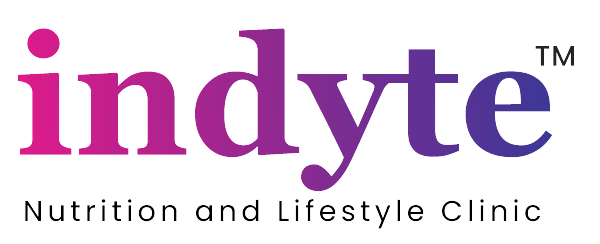Thyroid disease is a common condition that affects millions of people worldwide. The thyroid gland, located in the neck, produces hormones that regulate metabolism, growth, and development. When the thyroid gland is not functioning properly, it can lead to a range of health problems as it plays an extremely important role in the body, regulating hormones that affect other organs including the brain, heart, liver, kidneys, and skin. Thyroid function is heavily dependent on nutrients, so the root cause of imbalance is often nutrition or our lifestyle.
Different types of thyroid conditions:
Disorders of the thyroid include hypothyroidism (underactive), hyperthyroidism (overactive), Hashimoto’s disease, Graves’ disease, thyroid nodules, and thyroid cancer, but the most common is hypothyroidism—a condition in which the thyroid gland does not produce enough thyroid hormone.
| Hypothyroidism: Hypothyroidism occurs when the thyroid gland is not producing enough hormones. This can lead to a slower metabolism, weight gain, fatigue, and other symptoms. Hyperthyroidism: Hyperthyroidism occurs when the thyroid gland is producing too many hormones. This can lead to a faster metabolism, weight loss, nervousness, and other symptoms. Thyroid nodules: Thyroid nodules are growths on the thyroid gland. Most nodules are not cancerous, but some can be. Nodules may cause symptoms such as difficulty swallowing or breathing. Thyroid cancer: Thyroid cancer is a rare but serious condition that occurs when cells in the thyroid gland grow and divide uncontrollably. Autoimmune conditions of thyroid Grave’s disease is an autoimmune condition that affects the thyroid gland in which the thyroid gland produces excess hormones responsible for metabolism regulation, resulting in severe complications. Hashimoto’s Thyroiditis, or Hashimoto’s disease, is another autoimmune disorder in which the body’s immune system attacks the thyroid gland that can lead to gland’s inability to produce the hormones needed to regulate metabolism, resulting in hypothyroidism. |
Causes of Thyroid Disease:
The causes of thyroid disease can vary depending on the type of thyroid disease. Some common causes include:
| • | Autoimmune disorders (such as Hashimoto’s thyroiditis or Graves’ disease) | |
| • | Iodine deficiency | |
| • | Radiation exposure | |
| • | Medications (such as lithium) | |
| • | Genetic factors | |
| • | Aging |
Symptoms of hyperthyroidism (overactive thyroid)
• Anxiety, irritability, and nervousness.
• Having trouble sleeping.
• Losing weight.
• Having an enlarged thyroid gland or a goitre.
• Having muscle weakness and tremors.
• Experiencing irregular menstrual periods
• Feeling sensitive to heat.
• Having vision problems or eye irritation
Symptoms of hypothyroidism (underactive thyroid)
• Feeling tired (fatigue).
• Gaining weight.
• Having frequent and heavy menstrual periods.
• Having dry and coarse hair.
• Having a hoarse voice.
• Experiencing an intolerance to cold temperatures
Managing Thyroid Disease:
Hypothyroidism most commonly affects women of childbearing and middle age. It is detected via a blood test and usually treated with a daily synthetic thyroid hormone tablet.
Managing thyroid with Nutrition and lifestyle changes:
Here are some tips for maintaining a healthy lifestyle to support thyroid, maintaining a nutrient-rich diet, exercise, good quality sleep and stress management which keep your thyroid healthy and well-functioning.
1-Avoid processed and refined foods items like those made from white flour and sugar
2-Choose healthy fats like olive oil, coconut oil, fatty fish, etc.
3-Incorporate iodine-rich foods into your diet like iodised salt, dairy, eggs, chicken, and fish
4-Poor gut health hinders nutrient absorption, which can lead to nutrient deficiencies and autoimmune reactions that affect the thyroid. Support your gut health by eating probiotic- and prebiotic-rich foods.
5-Maintain regular physical activity like walking, yoga, cycling, etc.
6-Adequate sleep and manage stress level.
7-Include foods rich in selenium and zinc, such as Brazil nuts, spinach, tuna, sardines, grass-fed beef, flax seeds, pasture-raised eggs and mushrooms.
8-Limit caffeine and alcohol consumption, both of which affect stress levels, gut health, and ultimately, thyroid treatment.
9-Drink More water. It helps the body stay hydrated and flushes out toxins.
10-Cruciferous vegetables (cabbage, cauliflower, broccoli, spinach, Brussel sprouts etc.) in moderation, if they are cooked well.
11-Include protein, which helps curb hunger and make you feel full. That includes dairy foods, eggs, legumes, and seafood.
12. Add vitamin D rich foods , food that contain vitamin D include eggs yolks, mushrooms, fatty fish ,fortified – such as milk, yoghurt, orange juice. Sunlight is also a good source, but the amount of vitamin production depends on season and latitude. If you need a supplement, your doctor can prescribe the right dosage.
13. Vitamin B12 – Studies have shown that about 30% of people experience a vitamin B12 deficiency. Food sources of B12 include molluscs, sardines, salmon, organ meats such as liver, muscle meat, and dairy. Vegan sources include fortified cereals and nutritional yeast.
In conclusion, a sedentary lifestyle and stressful work culture can put a lot of pressure on the thyroid gland, affecting our body organs and can lead to range of health problems. It is rare to prevent the onset of thyroid disorders. Understanding the different types of thyroid disease, their causes, and symptoms can help individuals make informed decisions about their health. With proper treatment and lifestyle changes, people with thyroid disease can live healthy, active lives and reduce the risk of complications.
